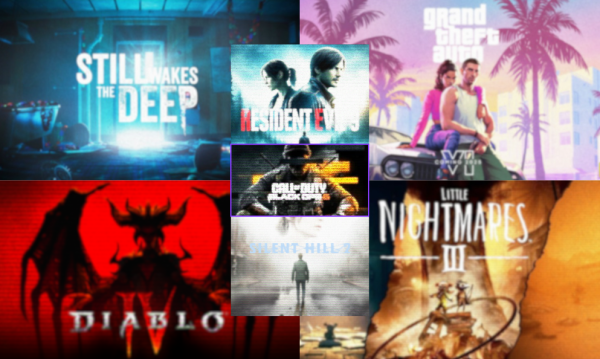Darkon: Sincerity, bias, and insight
Darkon:
The experience of watching Darkon can best be compared to the experience of watching a ‘mockumentary’ which is a fictional movie filmed in a documentary style for the purpose of satire. Think Christopher Guest’s Best in Show, about the elite world of dog shows and dog breeding in which actors deliver self-important monologues while the audience witnesses the ridiculousness of the situation.
Make no mistake, however, Darkon is a legitimate documentary, but its presentation at the hands of directors Luke Meyer and Andrew Neel make the content of the documentary– a feud between two groups within the role-playing game of Darkon– and the people involved– an assortment of suburban, cubicle and minimum-wage workers– feel like caricatures. This decision certainly makes for an entertaining story, but it also reveals a kind of inherent bias on the part of the filmmakers and their intended audience.

Darkon, filmed primarily in 2005 and released in 2007, is about a group of live-action roleplayers in Maryland who play the game Darkon. Darkon is a medieval-style fantasy game (reminiscent of Dungeons & Dragons) in which separate groups of people and kingdoms interact with one another. As presented in the movie, the different factions of the Baltimore chapter meet bi-monthly to host small competitions and battles, and meet once a month for more involved game play. The real conflict of the movie comes when Barron (the game alter ego of stay-at-home dad Skip Lipman) decides to break from the larger kingdom headed by Keldar (corporate manager Kenyon Well’s character) because of growing worries surrounding cultural and physical imperialism. What follows is a fraught inner-game conflict that slowly begins to bleed into the participants’ real lives as they grapple with their fictional hierarchy and real-life philosophies.
The ultimate truth of Darkon– both game and film– is that the people playing are social outcasts. This is both the presentation of the movie’s subjects, which focuses on the feelings of rejection, loneliness, and bullying, and the testimonials of the participants themselves who refer to Darkon as being a place where they feel they can belong. Some of this ostracization is foreign to current audiences, who by-and-large grew up in a time when being a ‘nerd’ or ‘geek’ is its own badge of honor, but some of this disconnect is the product of how Darkon is filmed and edited.
The goal of a documentary is to connect to and understand the subject matter in a new way. Think of nature documentaries which make audiences feel emotionally invested in the lives of elephants or penguins, despite these animals not being able to communicate verbally. Or consider Al Gore’s An Inconvenient Truth, which connects otherwise ambivalent audiences to the plight of those who will experience the effects of climate change first. Documentaries are ultimately the bridge between different kinds of reality, highlighting the underlying human similarities between otherwise polar opposite people.
Darkon, though, does not try to bridge this gap. It understands that by-and-large the people watching the documentary are not going to be players of Darkon themselves, and rather than make a movie about Darkon-lovers for Darkon-lovers, it makes a movie for outsiders. The result of this is that the insane, unbelievable, and embarrassing aspects of the game or the subjects’ lives are not given context, which often undermines the legitimate feelings of those involved for the entertainment of the masses.
Consider a drawn out testimonial in which a Darkon player explains his character evolution throughout the game, and what initially drew him into playing. As he describes the emotional importance of Darkon as a space to experiment and try new things, the footage shows him crawling on all fours on the ground, sweating and messing with the grass. The reason for this action is never explained, and so the outsider audience is allowed to assign whatever meaning they want– which for most of the audience, will result in judgment towards the person involved.
This isn’t the only instance of this intentional dissonance. I won’t deny credit to the makers of the movie, the contrast is undeniably funny or at least shocking enough that I laughed, but the more times it happens, the less enjoyable that experience becomes. Near the end, I reached a point where the stark contrasts began to feel more insincere than funny.
The players share the details of their lives without question or hesitation (one member shares that Darkon is like the American Dream when his real life is not, and another says that he hopes playing Darkon will build his confidence to make friends and date), and in-turn they found themselves presented as clueless, strange, and humorous. Their feelings are stripped of their impact, so the makers can wink to the audience and say: Isn’t this crazy?
As much bias as there is on the part of the creative team, I know there is equal bias on my part as well. I intimately recognize the lives of Darkon’s subjects, and the conditions of their lives. The aging suburbs, 9-5 hopelessness, and feelings of unimportance are all things I grew up seeing and experiencing myself. So when I watch Darkon, I can’t see it as unintentionally funny people acting weirdly on camera; I see neighbors and friends and in a different lifetime, myself.
Darkon, for those in the movie, is a place of reprieve. It is somewhere they go to escape from the hardship and lack of mobility in their lives. They go to Darkon to feel they have agency, and to feel they matter when all the circumstances of their day-to-day lives make them feel powerless and unimportant. These are universal feelings, and while we don’t all turn to Darkon to cope with them, we turn to something.
So, do I think Darkon is worth watching? Yes. But when watching, it’s important to remember that we all have our own version of Darkon, and that, while it’s easy to pass judgment, if our hobbies were scrutinized or presented by others, we would not be free of this judgement either.
7/10 would have complicated questions about life and judgment again
Further breakdown:
Writing Quality: 7/10 Enjoyability: 8/10
Pace: 7/10 Visual elements: 6/10
Plot development: 7/10 Insightfulness: 10/10 (the players are highly insightful even when the movie is not)
Characters: N/A





